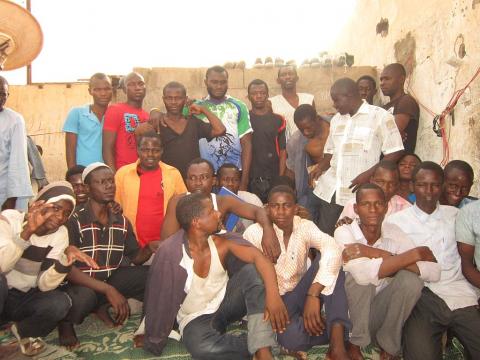By Umaru Fofana
Sierra Leone’s Foreign Minister, Dr Samoura Kamara says his government is treating as “human-trafficking” the case of fifty Sierra Leoneans stranded in the southwestern Libyan city of Sabha. Speaking to Politico, the minister says that the embassy in Tripoli has been instructed to contact the stranded and respond to their plight. He says it is difficult to reach them because they are apparently being held captive, and their number is too large to assure immediate repatriation back home. The minister however assures that all that can be done will be done to get them back to Freetown. The Director General of Foreign Affairs says she has received a report from the embassy in Tripoli regarding the situation of the stranded. Ambassador Rasie Kargbo, however, told Politico that over US$ 50,000 (fifty thousand dollars) was needed for the repatriation which “the ministry does not have”. She said the request would be made to the finance ministry but declined to give any guarantees or be specific on when the cash would be ready. A foreign ministry source says the ambassador to Libya is currently unwell and away from base which “is also slowing efforts to respond”. Meanwhile the condition of the fifty continues to deteriorate. “We are in dire need of help here as we cannot even move out of our shelter and do not have enough food to eat” one of them, who prefers anonymity, told Politico. Another said: “We are dying in Libya if our government does not respond immediately”. A third member, Alimamy Bangura, says nine of his colleagues have had their passport seized from them by members of a shadowy Libyan group operating in the Sabha area. The stranded Sierra Leoneans have given the name and contact of someone in Freetown whom they allege was behind their apparently fake recruitment for work in Libya, Chile, Japan and Haiti which Politico has passed on to the Sierra Leone Police. Politico broke the story last week which led to a Sierra Leonean in London sending by Western Union £ 100 which they could not access due to movement restrictions. The money had to be channelled through an embassy official in Tripoli who is trying to get it across to them. Efforts are also being made on social media to raise funds for them, while some have contacted the International Office of Migration to repatriate them.








